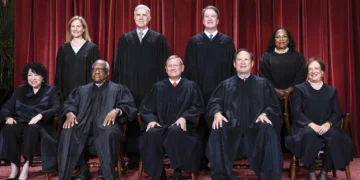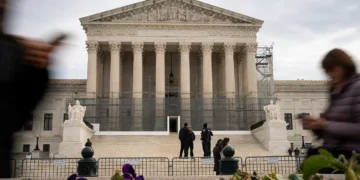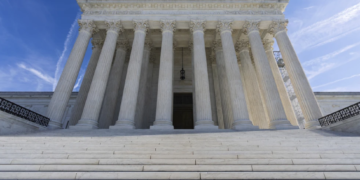Kenny Holston/The New York Times
July 14, 2024 Story by: Editor
On May 23, 2024, the US Supreme Court issued a 6-3 decision permitting racial discrimination in the drawing of voting maps, disregarding the voices of Black voters challenging racial gerrymandering and weakening efforts to build a multiracial democracy in the United States.
This ruling conflicts with international human rights treaties binding on the United States, which mandate protecting the right to vote without discrimination and prohibiting policies that have a discriminatory effect based on race, regardless of intent.
The Supreme Court overturned a lower court ruling that found South Carolina Republican state legislators discriminated against Black voters when drawing recent congressional maps. The lower court had determined that the South Carolina map violated the right to equal protection of the law under the US Constitution.
When the South Carolina legislature redrew Congressional District 1 in 2021, it removed hundreds of thousands of residents from the district, including over 60 percent of Black residents in Charleston County. Even the state’s appointed mapmaker admitted the new map created “tremendous racial disparity.” As a result, Black South Carolinians now only have a meaningful chance to elect one of seven representatives to the US Congress, despite comprising more than a quarter of the state’s population.
Black voters have argued that the new map suppresses their voices, diminishes their political power, and is discriminatory. They sought legal remedies for these claims of discrimination and infringement on their voting rights.
The Supreme Court majority sided with South Carolina Republican legislators, who contended that the map was primarily designed using political voting patterns rather than race. Their decision dismissed the evidence the lower court had used to conclude that South Carolina significantly relied on racial data during its redistricting process.
The three dissenting Supreme Court justices emphasized the ruling’s harmful implications, warning that the Court was signaling to state legislatures that they could suppress minority communities’ votes as long as they created a race-neutral justification. Justice Elena Kagan wrote, “In the electoral sphere especially, where ‘ugly patterns of pervasive racial discrimination’ have so long governed, we should demand better – of ourselves, of our political representatives, and most of all of this Court.”
To address this issue, Congress should pass the John Lewis Voting Rights Advancement Act, which would prevent states with histories of racial discrimination from implementing maps like the one now standing in South Carolina. Source: Human Rights Watch
















